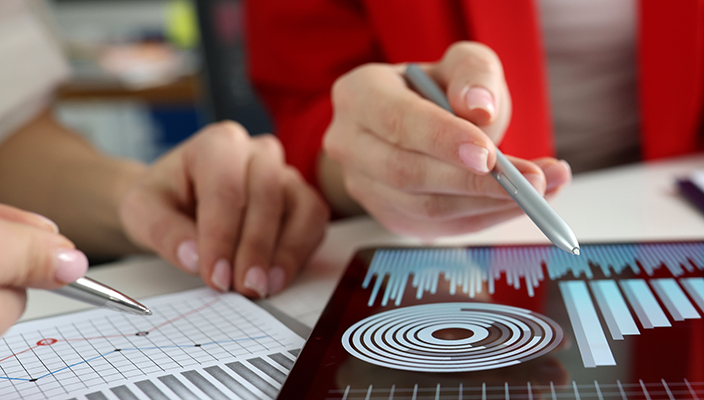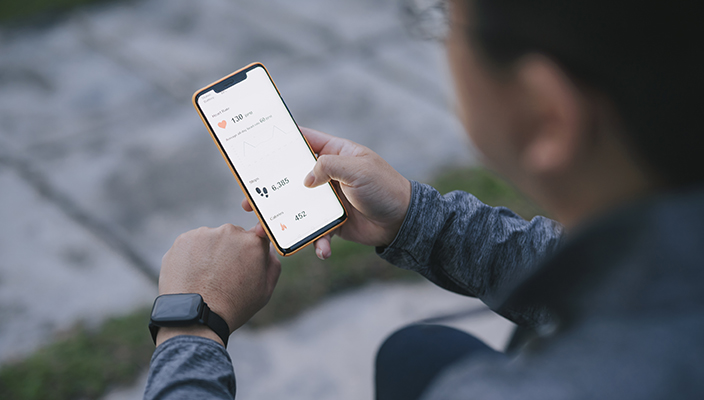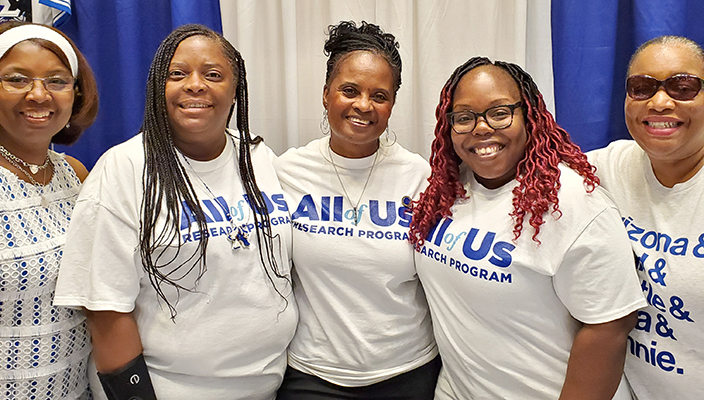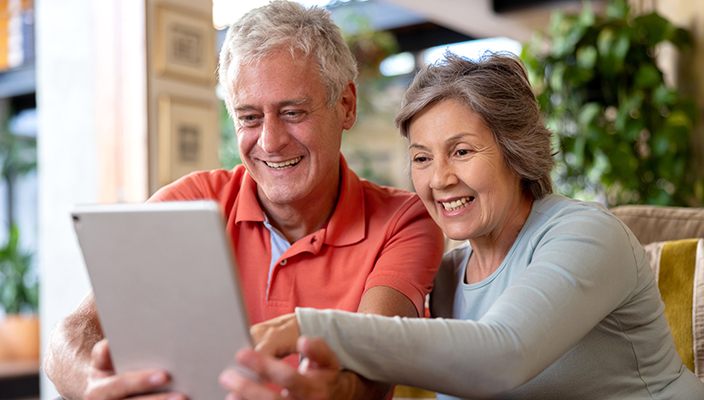February is Black History Month. Black History Month pays tribute to the many Black people who have lived, died, struggled, and triumphed in this country. Next month and throughout the year, All of Us honors the future that they made possible for all of us. One way to build a better future is by promoting meaningful research that can improve the health of everyone. This means engaging diverse communities in research. With help from our partners such as the Black Greek Letter Consortium (BGLC), All of Us is working to do just that.
BGLC is part of the National Pan-Hellenic Council. The council is a group of the nine national, historically Black fraternities and sororities also known as the “Divine 9.” BGLC educates people about All of Us and encourages them to join the program.
BGLC Program Lead Jennifer “JJ” Jones, Ph.D., and Antonio Martez, program coordinator for Kappa Alpha Psi Fraternity, Inc., talk about All of Us during Black history events to help Black communities overcome their mistrust of research. This mistrust stems from past abuses from researchers and institutions.
“I think what the program is trying to do makes a lot of sense,” said Dr. Jones. “We need to be a part of the solution. And fear can keep us away from being that part. My greatest fear is that there’s not a medical solution for my family when they need it because we’re not a part of the research now.”
Dr. Jones and Mr. Martez found a generational divide while talking to community members. Older folks who remember past research abuses such as the USPHS Syphilis Study at Tuskegee are cautious. They may refuse to take part at first. But younger students are far more accepting of the All of Us message. That is, taking part in All of Us can speed up health research for groups who have been left out of research in the past. All of Us wants to diversify health research by bringing in at least a million people from all walks of life. That makes each volunteer one in a million, said Dr. Jones.
BGLC hosts a number of events to reach Black communities. In one outreach effort, they visited historically Black colleges and universities to promote All of Us. “We talked about research, but even more, we talked about being true champions of your own health,” said Dr. Jones. “It was amazing to see the students. They were very receptive to the information and wanted to know how they could get involved, what they can do.”
In another effort, BGLC asked their fraternity and sorority chapters to hold watch parties for All of Us webinars. The chapters hosted watch parties at Mississippi State University, Georgia Tech, and Florida Atlantic University, among others.
“Mississippi State had more than 100 attendees at their event,” said Mr. Martez. “In addition to hosting that watch party, the individual chapters were educated on the program. So they were able to better educate those in attendance.”
BGLC sororities and fraternities include a focus on health, health equity, and social action. They have a strong community service aspect. They work with communities in which they and their members live. BGLC includes 1.7 million members around the world.
In Atlanta, Georgia, BGLC worked with the American Red Cross. The Red Cross hosted a blood drive at a church for people with sickle cell disease. Sickle cell is an inherited condition that mostly affects Black people. BGLC invited its members to donate blood and to learn about the benefits of All of Us for diseases like sickle cell. While the event went on, Mr. Martez made the rounds and explained that good medical research is not one-size-fits-all, just like eyeglasses.
Dr. Jones said BGLC has brought All of Us to small and large community events, such as the Essence Festival in New Orleans. And it is taking its All of Us advocacy on the road again soon. The Rooted in Resilience Tour kicks off in February. It will travel around Georgia, Texas, and North Carolina this year. BGLC hopes to enroll many more Black people to participate in the future of health research. If you’re in the area, stop by with a friend.
Another BGLC member, Johni Cruse Craig, Ed.D., is a partner strategist with All of Us. She brings community organizations together to increase the number of Black participants in the program. With enough diversity, research using All of Us data will be meaningful for people from all walks of life.
“My joy comes when these leaders of community organizations realize we have the same mission and heart. They get it, and we’re going to work together,” said Dr. Cruse Craig. “Because until we educate our community and get them past the distrust, we’re not going to get the numbers we need to diversify the data.”
Mr. Martez has faith that All of Us will be there in many Black History Months to come. “This program is the future of medicine,” he said. “What we’re doing right now, it’s a movement that we’re creating. We’re planting a seed today that we’ll reap the benefits from for generations.”
BGLC has been an All of Us partner since 2017 through the Community and Provider Gateway Initiative (CPGI). CPGI is a network of community and provider organizations led by Pyxis Partners, a community engagement awardee.
Watch Dr. Jones explain how to enroll in All of Us.









